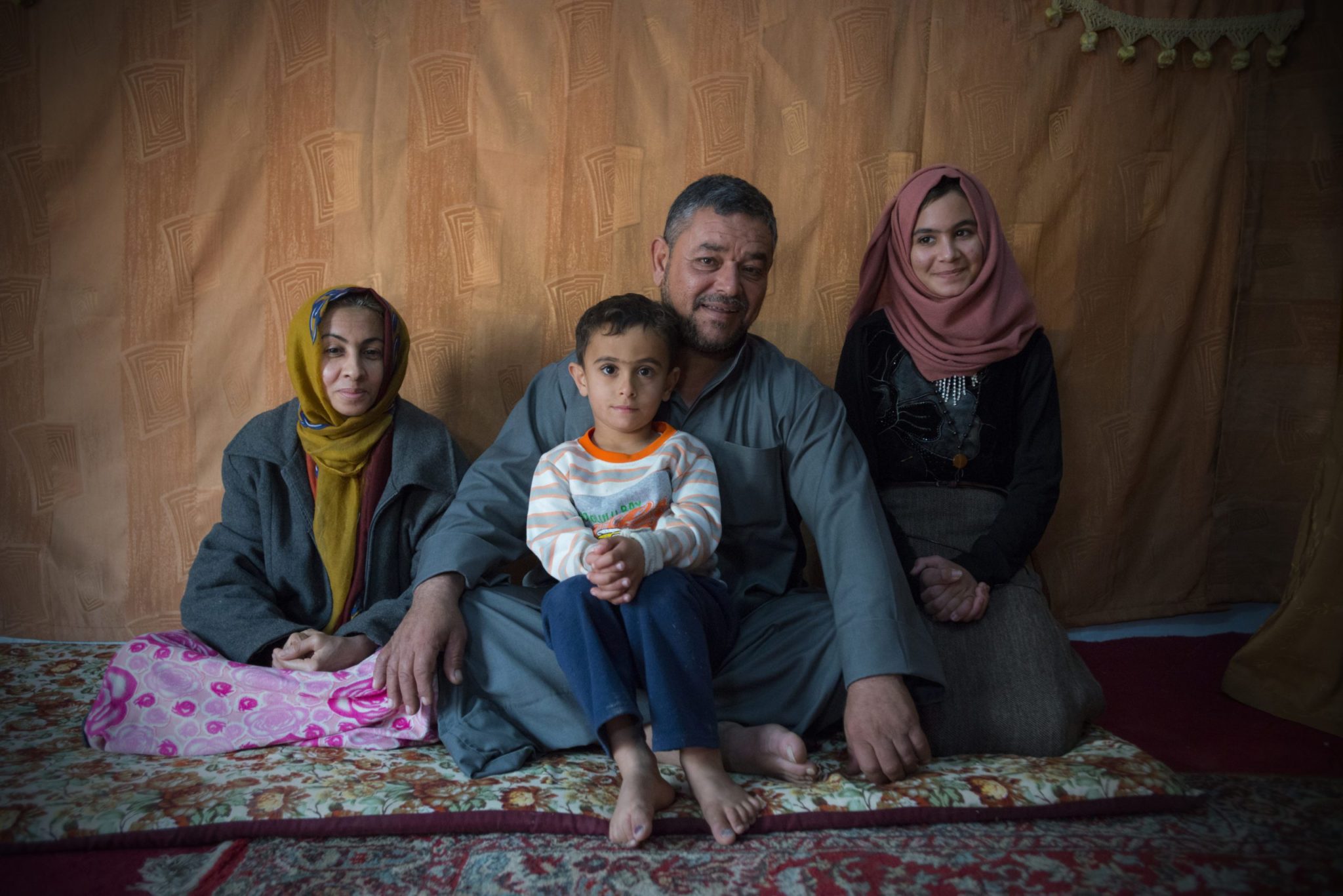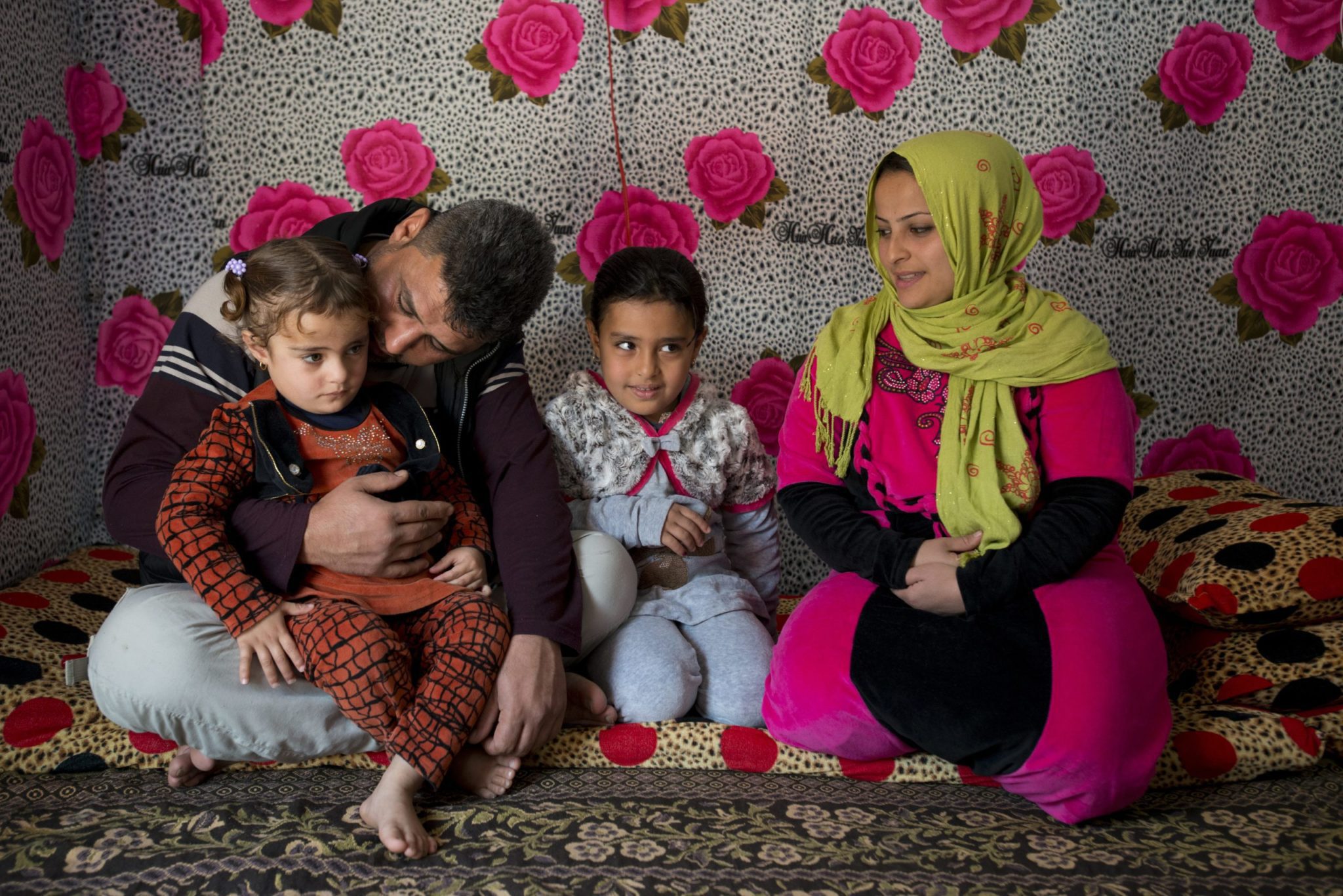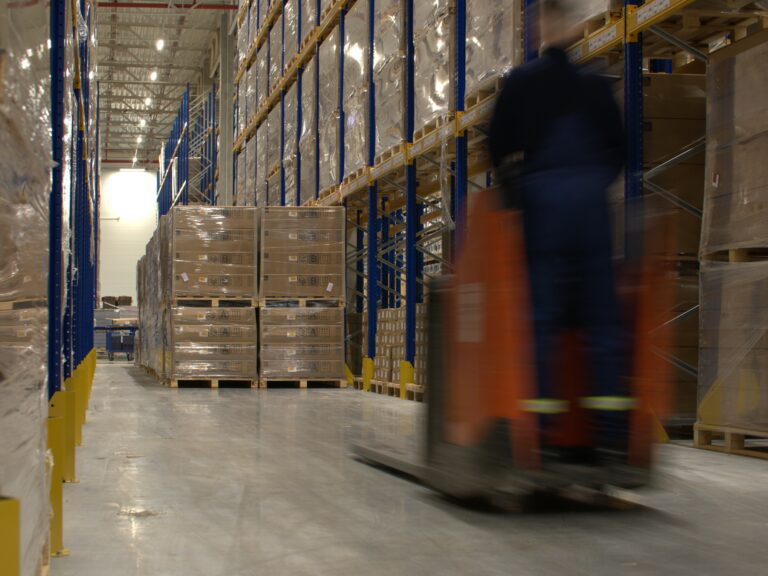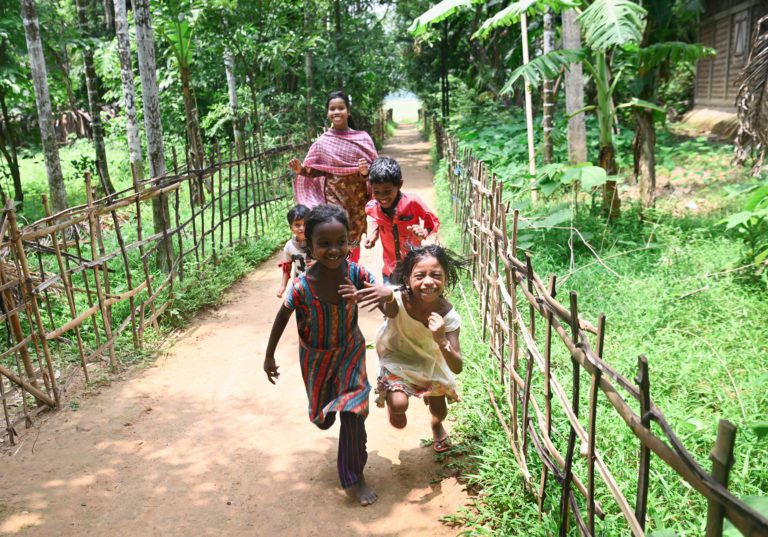

UNHCR has assembled 800 shelters across five camps in Iraq, improving the living conditions of 4,000 people fleeing their homes in other parts of the country. The shelters are mounted on concrete slabs to insulate the homes further and protect the residents against floods. The project was funded på Svenska Postkodlotteriet.
Iraq’s humanitarian challenges are enormous; the number of internally displaced persons is estimated at 3.3 million, meanwhile the country hosts almost 300 000 refugees. Children are among those hit hardest by the ongoing conflict, with exposure to violence, traumatic memories, repeated displacement and limited access to education. An estimated total of 10 million people in Iraq require humanitarian support of some kind.
The Abdelraza family
Family: Hamid Abdelraza, 55, his wife Fatma Khdhair, 42, and their children Bilal, 7, Faride, 14, Mohammed 19, Marwa, 25 (married), Duaa, 22 (married), Rahama 19 (married). Pictured here: Fatma (left) and daughter Faride. Hamid: “We fled our hometown of Fallujah approximately two years ago because of military operations. Our neighbourhood was threatened by ISIS. We were displaced to Erbil where we lived in a hotel for two weeks, and then, because it was too expensive, we decided to go back to Anbar. We stayed with my sister in Ramadi. In April [2015], we fled Ramadi and came to Baghdad. We fled from Ameriyat al Fallujah on foot and walked for 10 km until we reached the Bzeibiz bridge. My wife, who is sick, was feeling unwell. I had to push her on a wheel barrel because she couldn’t walk. The area around Bzeibiz bridge was so crowded and the road was blocked. We came only with the clothes on our back, nothing more. We entered Baghdad without sponsorship. When the police saw her at the bridge, they let us go through, because she looked as if she was about to die. From then on, we went straight to the camp and moved in on the same day. Our house was 200 square meters, it’s a big house, with 6 rooms and all the facilities, built in a modern design. When we arrived in the camp, we were living in tents. It was so difficult. We were sweating constantly, day and night. I would try to use a fan to help Fatma, but she was feeling horrible. [UNHCR] provided us with air coolers and rechargeable fans but the weather this summer was just too harsh. The tent was just too small, with dust everywhere. We were so excited when we found out [about the RHU]. The RHU is a blessing from god for us in the desert. We are so grateful to UNHCR for providing us shelter. The low ceiling was the worst in the tent. During the summer it was very hot and you couldn’t move inside either. In the RHU, there is space to move unrestricted and we started to buy things to make ourselves feel at home, like a set of drawers and a TV. It provides us with more privacy. My wife and I sleep behind the curtain and my kids sleep on this side, in the main ‘room’. During the floods earlier this year, all the tents were damaged. But when we were flooded again at the end of October, the RHUs were not affected at all. The new shelters are better because they give us privacy, which is extremely important for our tribe’s values. We received a summer assistance kit and non-food items. [A summer kit comprises a water cooler, a cool box and a rechargeable fan] We also received blankets, mattresses, cooking utensils, and hygiene items. Our life would be so miserable and difficult without UNHCR. Our future is full of mystery. We hope to return to our old life. We belong in our neighbourhood, with our relatives.” © UNHCR/Sebastian Rich
The Hameed family
Hind: “When the rains came to the camp, the water was about one foot high. But this shelter is more protected. We have a door that we can close and lock. I feel it’s safer. It is cleaner and more protected.”
Saffa: “The tents are like a piece of clothing and they would always move. We lived without any privacy. It was so difficult. If you compare life in the tents and now life in these shelters, it’s a thousand times better; there is no comparison. In the tent, we only had a small lamp. In June, we got summer kits and a water cooler. We also received things from UNHCR like a jerry can, 3 mattresses and blankets. We hope to go back home and to go back to our lives and my kids can live normally. I left my job and now am unemployed [he worked at the Ministry of Industries, responsible for warehouses]. We depend on donations [aid from organisations in the camp] and sometimes I get some money from working here and there.”
Hind: “Our children are still frightened of living in the camps because of the things we suffered. One daughter, Hamsa, is doing badly at school because of the trauma she went through and she has nightmares. We tried to send our other daughter, Malik, to kindergarten but she refuses to go and wants to stay with us at home. My dream is for us to return, to get back to our lives again. My daughters are beautiful and I hope they can have a better life, a better future, when they go back to Ramadi.” © UNHCR/Sebastian Rich



